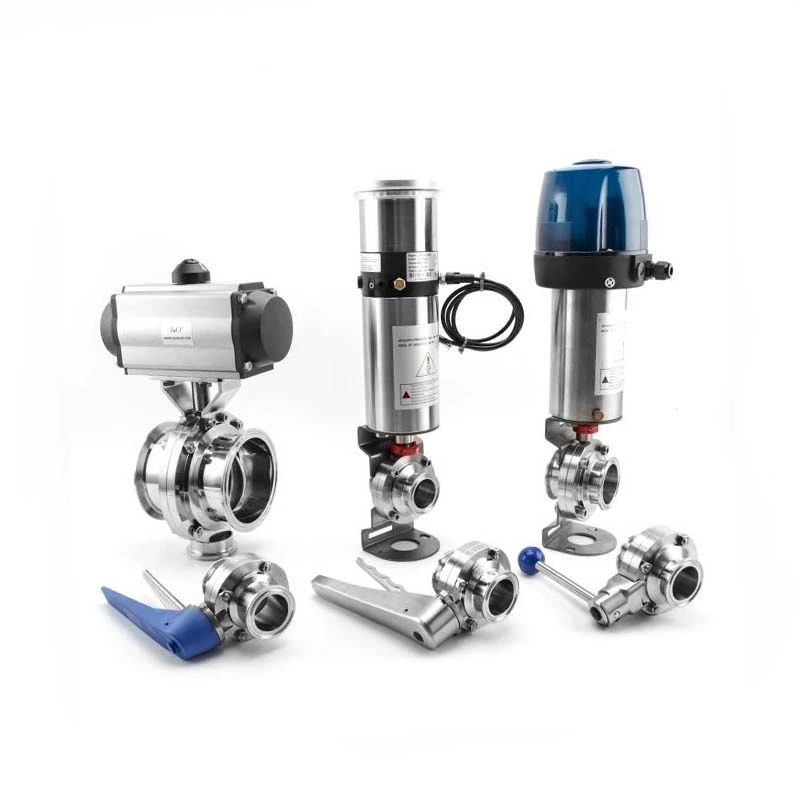Maintenance Tips For Pneumatic Three-piece Butterfly Valve
Sanitary Butterfly Valve has the characteristics of simple structure, small size, light weight, various sealing forms, wide applicability, self-locking ability, flow regulation, various materials and wide applicable temperature range. These characteristics make it a reliable and efficient choice in various industrial applications. When selecting and using it, users should fully consider its structural characteristics and application environment to ensure that its performance is fully utilized.
Maintenance method of pneumatic three-piece butterfly valve:
-Check valve parameters: Before installation, you must carefully check whether the pressure and diameter marked on the valve meet the use requirements.
-Check valve status: Eliminate defects that may be caused during transportation and remove dirt from valve parts.
-Valve position: The valve can be directly installed on the pipeline according to the connection method. Under normal circumstances, it can be installed at any position of the pipeline, but it needs to be easy to operate and repair.
-Media flow direction: Note that the media flow direction of the stop valve should be upward from the bottom of the longitudinal valve disc, and the lifting check valve can only be installed horizontally.
- Bolt tightening: The bolts of the packing gland should be tightened evenly and should not be pressed into a crooked state to avoid damage, obstruction of valve stem movement or leakage.
- Switching state: When using the pneumatic butterfly valve, it can only be fully opened or fully closed. It is not allowed to be used to adjust the flow to avoid erosion of the sealing surface and accelerated wear.
- Handwheel use: When opening and closing the pneumatic butterfly valve, use the handwheel. Do not use levers or other tools to avoid damage to the valve parts.
- Regular cleaning: During the use of the pneumatic butterfly valve, it should be kept clean at all times, and the transmission thread must be lubricated regularly.
- Stop using immediately: When a fault is found, it should be stopped immediately to find out the cause of the fault.
- Comprehensive inspection: Regularly conduct a comprehensive inspection of the pneumatic valve to find problems in time and eliminate hidden dangers.
- Preventive measures: According to the use and historical records of the valve, necessary repairs and replacement of parts should be carried out in advance.
- Quick response: For sudden failures, measures should be taken quickly to repair them to reduce production losses.
